The “Quakers vs. ICE” Lawsuit
When the federal government rescinded a decades-old policy protecting houses of worship from immigration raids, a group of Quakers filed a lawsuit against the Department of Homeland Security. Their argument is uniquely Quaker: the threat of armed agents in their meeting houses creates a “chilling effect” that doesn’t just lower attendance, it fundamentally obstructs their ability to worship, a practice which requires the presence of a diverse community to hear the full expression of God.
What happens when Quakers sue the government? What might be the unexpected ripple effects? And what does it mean for the future of religious freedom when standing by your principles lands you on the radar of a congressional committee?
Subscribe so you don’t miss an episode!
Leave a comment below to share your stories and thoughts!
Download the transcript and discussion questions.
Discussion Questions
- The Mountain View Friends Meeting created a detailed plan with greeters, messengers, and videographers in case of a raid. Do you feel your own community is prepared for a similar unexpected confrontation? What parts of their plan seem most effective or adaptable?
- A recurring theme is “doing what is yours to do.” In the face of overwhelming national problems, how can an individual or a small group determine what their specific responsibility is?
- The preliminary injunction temporarily protects only the congregations involved in the lawsuit , leading others to ask, “What about us?” What responsibility do those who have a degree of protection or privilege bear towards those who do not?
Introduction to the Lawsuit
Zack Jackson
At the Mountain View Friends Meeting in Denver, they pass around a sign up sheet before Sunday worship, but it isn’t for the potluck and it isn’t for coffee hour. This sheet has four jobs. Two people sign up to be greeters. Their job, should federal immigration agents arrive, is to meet them at the door and invite them to talk outside, so as not to disrupt the silent worship within. One person signs up to be a messenger. If ICE is on the premises, their job is to go quietly upstairs and alert anyone who might be there. And a fourth person signs up to be the videographer, tasked with a simple chilling instruction, pull out your phone and record whatever happens next. This isn’t a drill. It’s a plan. It’s a response to a new and unpredictable reality, one that all American faith communities will have to come to terms with sooner rather than later.
Zack Jackson
Across the country, from Los Angeles to Philadelphia, cities are tense. Protests have erupted following a series of aggressive immigration raids in LA. The situation has escalated dramatically, with the president deploying the National Guard against the governor’s wishes, creating a constitutional showdown and turning the city streets into a flashpoint of fear and anger. This particular episode was planned weeks ago about a quiet, principled lawsuit filed by a handful of Quaker organizations, but as we prepare to air, that lawsuit has become more urgent than ever. It is no longer a theoretical debate about government overreach. It is a direct response to a reality that is now playing out in real time, a reality faith communities have been dreading. This is the story of why, months before the protests began, a group of Quakers decided that they had to sue the federal government.
For over 30 years, it was the official policy of the United States government not to conduct immigration enforcement in so called protected areas, the policy designated places like schools, hospitals and houses of worship as safe zones, recognizing that enforcement in these areas would, “Restrain people’s access to essential services or engagement in essential activities.” Then on January 21, 2025 all that changed. The Department of Homeland Security announced that it had rescinded the protected areas policy. The guardrails were gone. The new policy put its trust in individual agents instead of policies to simply use their common sense.
A DHS press release described these formerly protected areas as places that, “Criminal aliens, murderers and rapists use to hide from law enforcement.” I feel like I need to add that there is absolutely no evidence to support that this was happening and law enforcement has always been able to enter these sorts of spaces if there are violent criminals hiding there. This was never about hunting down violent criminals. Because, within days, the fears of faith leaders began to materialize. On the first Sunday after the policy change, ICE agents attempted to enter a church in Georgia while the pastor was preaching, but settled for arresting one of the worship leaders in the parking lot instead. For communities like Mountain View Friends Meeting in Denver who have been supporting immigrants for over 40 years, this new landscape felt frighteningly uncertain. Penny Thron-Weber is a member there.
Penny Thron-Weber
This feels really different to me, because at that time, we were really clear that they were not allowed to come into the meetinghouse. You know, there was a policy of the meeting house and and, you know, all churches and healthcare centers and said, etc, being sensitive spaces that were protected. And now it doesn’t feel protected at all. Feels like anything could happen, and we don’t really understand, you know, the landscape is constantly in flux, and we don’t really understand what will be the next horrible thing that might get added to the litany. So. Uh, yeah, it feels really different.
A Uniquely Quaker Complaint
Zack Jackson
That feeling that anything could happen is what led a small group of Quakers to sue the federal government, but to understand why, you have to understand what happens inside a Quaker Meeting for Worship. This isn’t just about politics for them, it’s about the very possibility of faith itself. If you attend an unprogrammed Quaker Meeting for Worship, you’ll find people sitting together in silence waiting to hear messages from God. There’s a core belief that every single person can be a direct conduit for the divine. Christie Duncan-Tessmer is the General Secretary of Philadelphia Yearly Meeting, or PYM, for short, the lead plaintiff in this case.
Christie Duncan-Tessmer
The way that we worship, the way our faith is is about being able to experience the divine beyond what any one person can by being in community and being open to experiencing the way that others experience God in their lives, and that that expands the possibility for any one of us, and the more diverse our worship community can be, the more nuances, and I don’t know, crenulations and dimensions of that which is so far beyond any one of us, but unites every one of us, you know, the more we can see that. And so a block to anyone being able to participate, limits what the possibility is for our faith.
Zack Jackson
And this is the heart of their lawsuit. The government’s new policy, they argue, creates a profound chilling effect. It deters immigrants and their families from attending worship for fear of raids, and according to their faith, when those voices are absent, the entire community is spiritually impoverished. Noah Merrill is the Secretary of the New England Yearly Meeting of Friends.
Noah Merrill
It robs the worshiping communities, regardless of any of our immigration status, of the opportunity to benefit from the gifts in the ministry of people who might be prevented from participating. So it’s not just that it affects people who wouldn’t be able to participate. It affects the community as a whole. Freedom of Religion is not just about personal belief that there really is no freedom of religion without the opportunity to gather with other worshipers, to as you know, as friends would say to to together, share in in the presence of God, and to allow ourselves to be knit together as a community of faith and guided in how we we live in the world and so to us as we know it, to many people of faith, that freedom of religion doesn’t mean anything if it doesn’t allow for freedom of practice together as a covenant community.
Zack Jackson
This lawsuit rests on several arguments, from the First Amendment’s right to religious expression to the government’s failure to follow its own rule making procedures. But for Christie Duncan-Tessmer, it’s more than just laws and policies. This action is rooted in a history that is centuries deep.
Christie Duncan-Tessmer
Particularly for Philadelphia Yearly Meeting, that our commitment to freedom to practice religion goes back to the 1600s literally, and that when William Penn was founding Pennsylvania to be a Quaker space, he set it up so that there would be freedom of religion, so that Quakers who had been restricted from practicing their faith and got in trouble for it in England, could come here and freely practice, but he didn’t set it up just for Quakers. He set it up for everybody to be able to practice their faith freely. And that was part of the Charter of Privileges. That was the governing document for Pennsylvania. And then that freedom of religion from the Charter of Privileges was picked up in our Constitution, so that right within our country can be traced back to some of the core ways that Philadelphia Yearly Meeting and how Pennsylvania functioned from the 1680s
Zack Jackson
This deep seated conviction meant that when the opportunity to file the lawsuit arose, the discernment process was swift. It was, as many described, electric.
Noah Merrill
It came together very quickly, and really felt like a movement of the Spirit. I remember I spoke with a couple of people in pretty quick succession, and then had a meeting with our presiding clerk. I shared this possibility that we might be part of this, of this lawsuit getting started, and we settled into worship, and it just became very clear to us both that this was something that we needed to do. We had known that we were there, you know, there were so many things that might need to be done that we couldn’t anticipate every eventuality, but we had the sense that we needed to be prepared to do what was ours to do. And so in this case, this, this felt very clear. It felt very clear in that it was consistent with friends, historical experience and testimony in a fundamental way. There, you know, there are many issues that that are of concern to Quakers or of the people of faith more widely, but this fundamental concern for religious freedom, for the right and the necessity or every human being, every child of God, to have the opportunity to to gather in worship with those who share their deepest commitments, to open their hearts to God, to find find a way forward in times like this, was so essential and so resonant with with with Quaker history, that we felt clear to to say yes.
Unexpected Ripple Effects
Zack Jackson
In a significant early victory, the judge in the case issued a preliminary injunction temporarily barring enforcement of the new policy at their affiliated houses of worship; that injunction has had unexpected positive ripple effects.
Christie Duncan-Tessmer
The executive director of one of the nonprofits in Philadelphia that serves the immigrant community contacted me and the executive director of Friends Center, both of us to see about collaborating on an event. And what he said is that, since these changes at the federal level around immigration happened. There was, there was no response that he experienced, and they felt really alone. And when he heard about this suit, it felt like, like they weren’t alone.
Zack Jackson
Because of the legal protection from the injunction, they were able to hold a community event where immigrant families felt safe to attend. This connection sparked an idea. After learning that immigrant owned businesses were struggling because customers were afraid to leave their homes, a coalition of faith leaders decided to act.
Christie Duncan-Tessmer
The Interfaith Leaders Council has been developing a initiative where we go to corridors in the city where there are a lot of immigrant owned businesses, and as a group, we go down the street, and a few of us at a time go into different businesses and say, “Hi, we’re we’re local faith leaders and faith communities, and we want you to know that we know that you’re our neighbors and that you’re important to us”
Zack Jackson
But their first attempt revealed the profound depth of the fear in the community.
Christie Duncan-Tessmer
There was one place where the business had the door locked, and you have to ring the doorbell to come in. And we went, and it was primarily white men who walked up to that door. They were just like, “oh, let’s go here.” And it happened that it was primarily white men, and they rang the doorbell, and someone came and looked out the window, and she just shook her head and walked away. She was not letting that group in. She didn’t know who we were.
Zack Jackson
It was a painful lesson. So they adapted. They partnered with a local nonprofit that had deep roots in the community,
Christie Duncan-Tessmer
And so they went in advance. Their staff went in advance and said to the shop owners, “Hey, these faith leaders are going to come because they really just want to meet you and say hello and be in relationship.” So we just wanted to let you know that’s happening. And then we they organized us into small groups, and there were one or two staff people with each one, and they brought us to specific places and introduced us and translated.
Zack Jackson
The response was overwhelming. People cried. They shared stories of harrowing journeys to America. And sometimes when the faith leaders tried to support the businesses by buying something, the owners refused their money.
Christie Duncan-Tessmer
Sometimes that didn’t work, because as soon as they heard who we were, there were like three different times where I tried to buy something and they said, “No, no, no, please. It’s a gift.” I’m like, I’m trying to Okay, oh, thank you.
Zack Jackson
The simple act of walking down a street has now become a model. A Friend from Harrisburg, after reading about it on the Yearly Meeting’s website, is organizing the same thing in their community. It’s a small, tangible way to push back against the chilling effect one conversation, one storefront at a time.
After the break, we look at how one meeting is preparing itself for non violent confrontations with immigration officials, and we get an update about a vaguely threatening letter from DHS that could have far reaching consequences. Stay with us.
Midroll Ad
Jon Watts
We get so many great comments from our listeners about how they decided to become monthly supporters of this podcast, and today, I wanted to share Hannah Ringler’s story with you. What really piqued our interest is that Hannah said she listens to the podcast with her young son on their way to meeting in Durham, North Carolina. But her journey to Quakerism started long before she became a mom.
Hannah Ringler
My mother was raised Methodist, and when we were children, she wanted us to have a wide variety of options to choose from. So we did a grand tour of the denominations of the county I grew up in. We went to the Methodists and the Presbyterians and the Episcopalians, and every now and then to the Quakers. I also attended camp Celo as a young elementary school student. And camp Celo is a Quaker camp. And so one of the things that you do at Camp Celo is that on Sundays, you attend meeting for a little while, and then, as an adult, I wanted to go back to Quaker meeting. It was always the experience that had resonated with me most deeply.
Hannah Ringler
So I felt like I didn’t have a lot of grounding in what it means to be Quaker. So I was looking for a podcast that I could listen to that would help give me some of that information so that I could decide whether or not this was something I genuinely wanted to commit to, and so that if I did, I could do so in an informed and thoughtful way and fully. And I ran across the podcast, and it’s been extremely helpful for providing that background and context that I was looking for. One thing that I found that I wasn’t expecting was that it gave me a lot to think about and often prepared me for meeting, especially when you’re feeling really scattered. If you go into meeting and you sit down and you continue to be scattered. And I also like that obviously my three year old doesn’t understand most of what he hears, but he does listen very attentively to everything. And we listen on the way to meeting and on the way back, I talk to him about what being in meeting was like and what he did with the caretakers. And also we talk about the podcast, and then we talk about anything that came up that he was interested in, like, “What did you hear? What do you have any questions about it?” and he often has something to say.
Jon Watts
And that is why Hannah not only listens to the podcast, but also decided to become a monthly supporter.
Hannah Ringler
Well, you’re doing the work of educating me. I owe you. You’re giving me the lessons that I was looking for and needed. And that work is important, and if I want to keep having this material that I was looking for, I need to ensure that you have the funding to keep doing it.
Jon Watts
We are so thankful to hear stories like this one about how this show has supported Hannah and her son to discover the spiritual richness of friends around the world and to connect with their local meeting. With your help, we can keep doing this work. In less than five minutes, you can become a supporter for just a few dollars a month, and help us produce the stories that resonate with longtime friends, new friends and seekers. Just go to Quakerpodcast.com and click the support button. Thank you so much. Now back to the show.
Protecting The Space
Zack Jackson
While the lawsuit makes its way through the courts, communities on the ground are preparing. Back at the Mountain View Friends Meeting in Denver, they’ve installed cameras and posted signs stating that while all people are welcome, guns are not. It’s a practical response for an unthinkable moment, but for Penny, this preparation is more than just practical. It’s a profound expression of her faith.
Penny Thron-Weber
I think this is what we’re about. This is what we are as Quakers, is people who are willing to be courageous and take a stand for the people that they that we care about, which is everybody else in the world. It’s been so fulfilling and so, you know, these people are so wonderful that I would say to other meetings that, you know, the gifts are bigger to us than they are to the people that we accompany.
Zack Jackson
In the face of a policy that sows fear and division, these communities are responding with principled action. As protests fill the streets and the national conversation grows more heated, their quiet, deliberate work, rooted in centuries of conviction, feels more vital than ever. For these Quakers, the path forward involves both immediate action and long term, thoughtful listening.
Christie Duncan-Tessmer
There needs to be an immediate reaction and there needs to be a thoughtful long range action. So the suit is primarily about immigrants and the immigrant community, but that’s not the only community that is increasingly less safe, decreasingly safe, increasingly targeted in our community, and so what is it that’s ours to do for all black and brown people in this country and for queer people in our communities?
Zack Jackson
As their case proceeds, these Quaker communities continue their work in the courthouse and in their meetinghouses. They are standing firm in conviction and solidarity, determined to ensure that every voice and every potential message from God is welcome.
Noah Merrill
The witness of the love of God born out through anonymous and humble lives. You know, is, is, I think, is, I think, how we live out the Gospel, not because, not because we want to be against, you know, a particular authority or a particular party or, you know, a particular political group, but because we are, hopefully, in whatever way we’re given witnessing to the love of God at work in the world that is not just another possibility, but a reality that we’re trying to live in relationship with. And I hope, in whatever small way that that’s, that’s what, that’s what prophetic witness means that there’s another possibility that is equally real and perhaps more real, and we’re choosing to live in allegiance to that, and that becomes an opposition to all that is contrary to human flourishing and to justice and to wholeness And to healing. So I, my hope and my prayer is that each of us will be, will be faithful to what we’re given, and to trust that there is, there is a greater love at work, even in these dark times, and especially in fact, in these times.
A Final Wrinkle
Zack Jackson
Trusting in that greater love is essential, because for the people who filed this lawsuit, the risks are becoming more tangible every day. Last week, PYM received a letter from the House Committee on Homeland Security that contained a summary of the Biden Administration’s immigration policies alongside what the Trump administration is trying to do to undo those policies. Attached to the letter was a survey that asked if they received federal funding and if they have been working with immigrant communities in any capacity. Nonprofits around the country are receiving this survey, and are struggling to discern how to handle it or even how to talk about it. Is it just bureaucratic administrivia or a way to weed out organizations that stand in the way of their policies?
In last week’s episode, Daniel Hunter told a story about 1.3 million federal workers who refused to answer a similar survey, and many nonprofits are choosing the same route of noncompliance. As of the date of this episode, the Philadelphia Yearly Meeting is still collectively discerning their response and has no official comment. We plan to follow up with this lawsuit later in Season 3, but I’d encourage you to go to their website at PYM.org if you want to follow this story as it unfolds.
There’s an old Japanese proverb that says, the nail that sticks out gets hammered down. By filing the lawsuit, the Philadelphia Yearly Meeting and their partners stuck their necks out, and while the story is far from over for them, the path forward is clear, to meet the risk with resolve, trusting not in the outcome, but in the simple, profound power of standing up for what is right. May that be an example for all of us.
Thank you for listening and thank you to today’s guests, Penny Thron-Weber, Christie Duncan-Tessmer, and Noah Merrill
Go to QuakerPodcast.com for discussion questions, links to more resources, and a transcript of this episode. And while you’re there, please leave a comment with your thoughts, so we can keep the conversation going.
This episode was hosted, produced, and edited by me, Zack Jackson. Jon Watts wrote and produced the music.
Thee Quaker Podcast is part of Thee Quaker Project. We’re a nonprofit Quaker media organization dedicated to giving Quakerism a platform in the 21st century. If you like what we’re up to, please consider becoming a monthly supporter.
You can go to QuakerPodcast.com and click support in the top right window. It takes less than five minutes and we really appreciate it. Thank you.
Hosted, produced, mixed, and mastered by Zack Jackson.
Original music and sound design by Jon Watts (Listen to more of Jon’s music here.)
Supported by listeners like you (thank you!!)
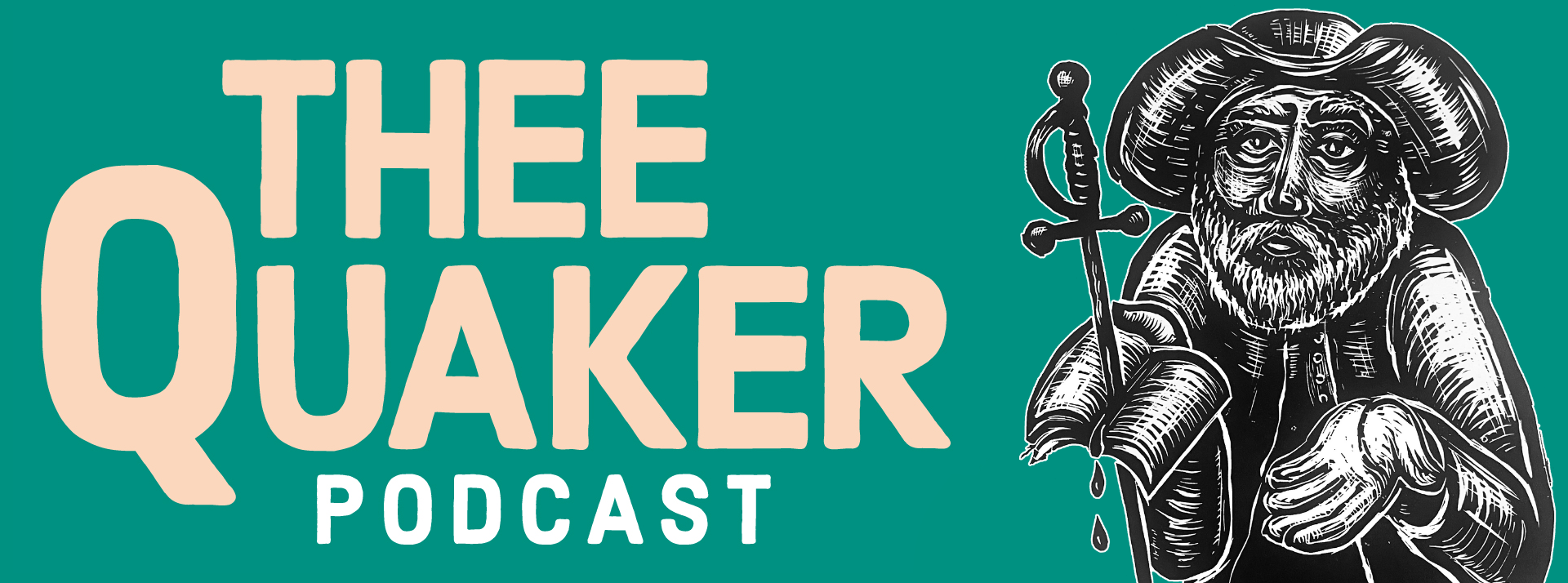

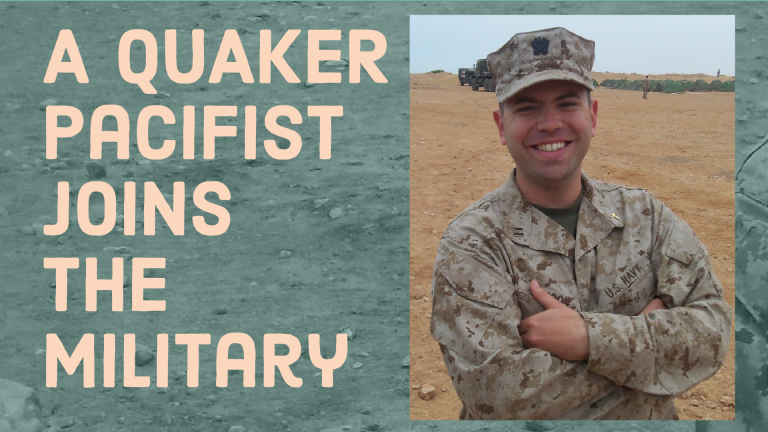
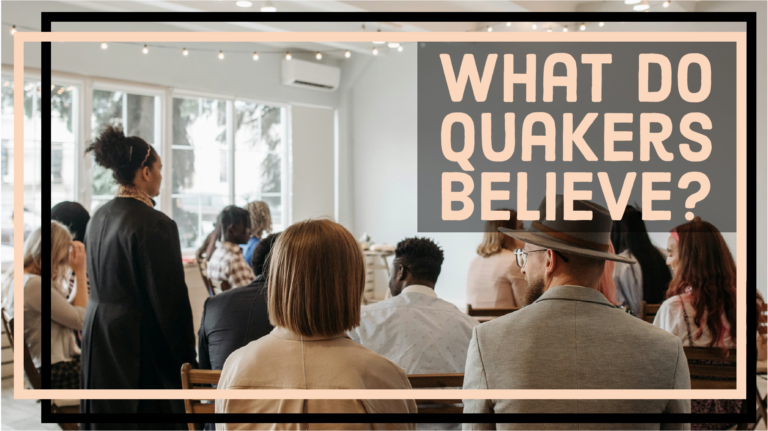
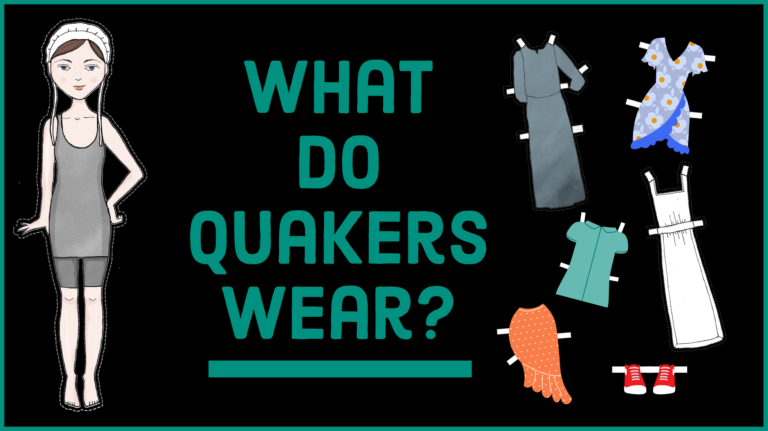

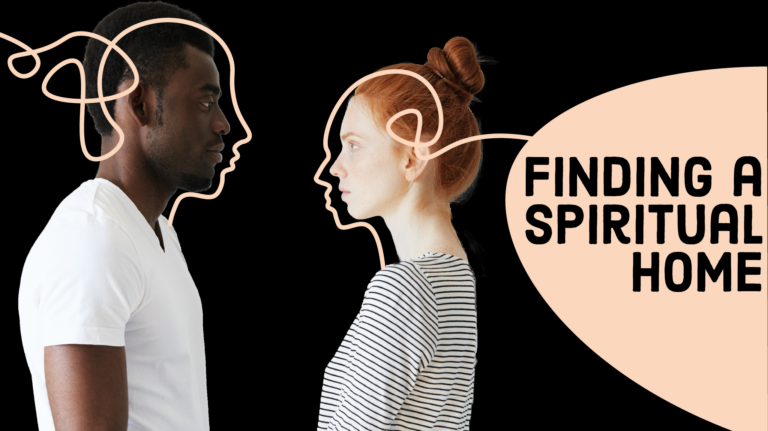
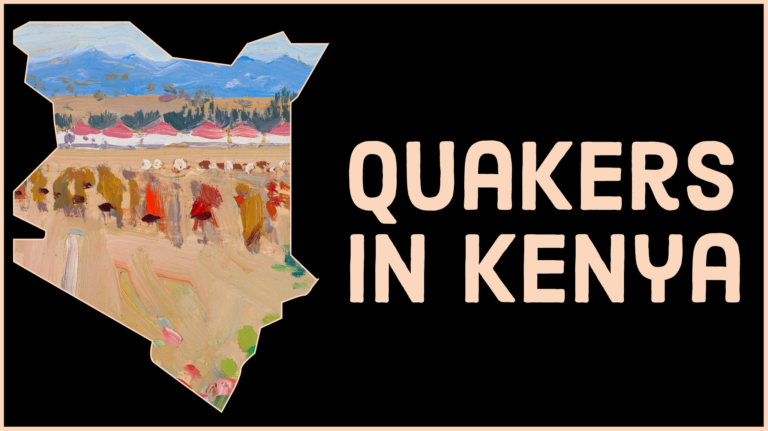
Dear Friends – just in case you follow up on the ICE lawsuit, and you want to give the website for Baltimore YM , it is bym-rsf.org (not bym.org)
Faithfully yours,
Karie Firoozmand
BYM Member